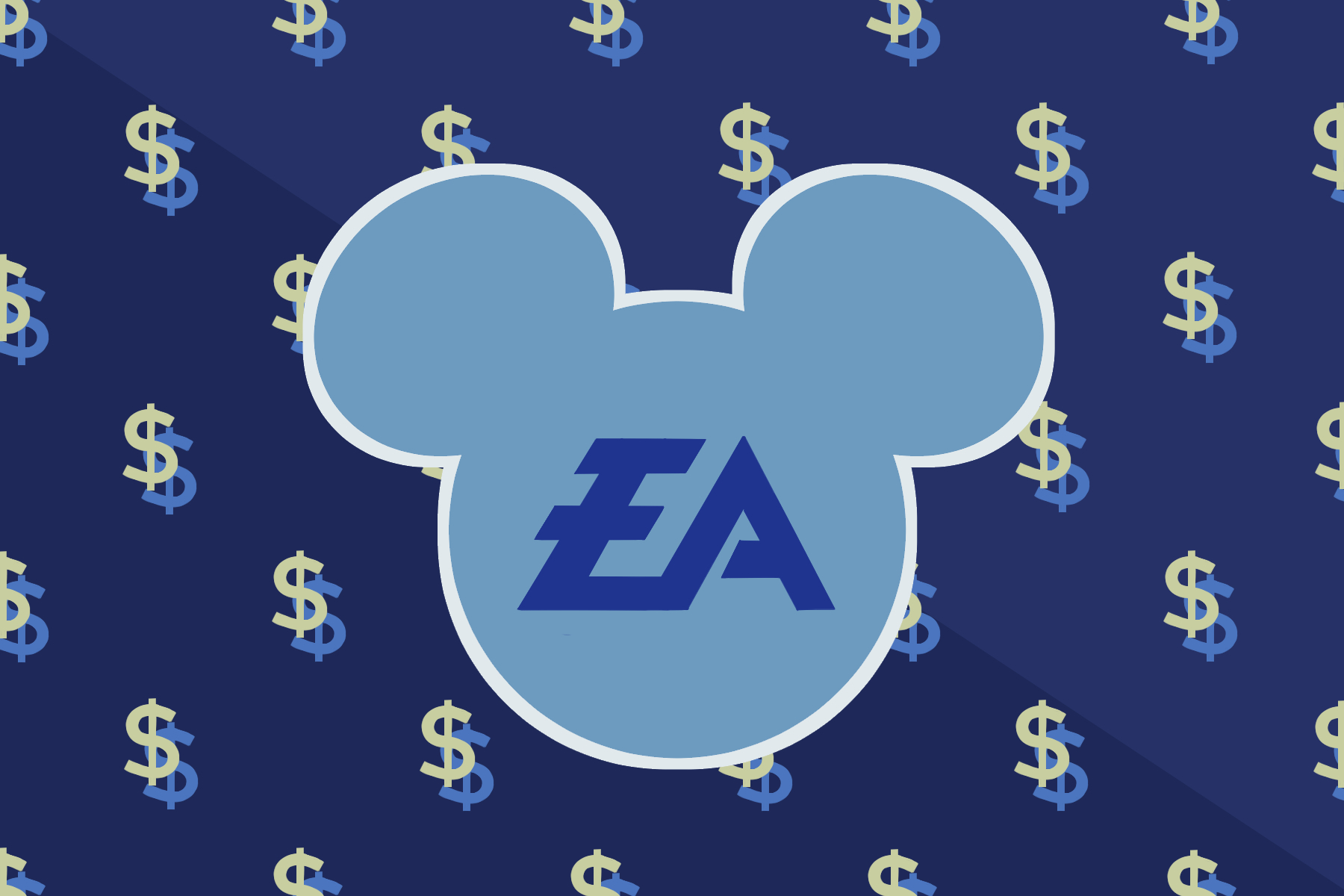Anyone who’s played their fair share of video games in the past few decades can attest that EA is a terrible company. Even people without experience in the gaming realm can probably think of something negative to say about them. They have no respect for their customers, they treat their employees like computers and their games are pay-to-win. In other words, they’re the Ellen DeGeneres of video game companies, only their content is somehow less entertaining.
The $36 billion corporation has lasted 40 years, and the past 20 have been especially brutal. Over the past two decades, their business practices have been more grotesque than the monsters featured in their Dead Space franchise. In the early 2000s, EA started employing a new business tactic that swallowed competitors whole. First, they would innocently acquire a small video game company with the supposed intention of growing their products. Then a few months later, they would strip the game of half of its creative work and replace it with an in-game monetization plan that maximized profits. After that, all that was left for them to do was release the cash grab they called a game, take the majority of the profits and screw over their newly acquired company along with their player base.
The most notable victim of this tactic was Origin Systems, which disbanded altogether after EA deemed their game unsuitable for their profit margin. Not only did they lose the creative freedom to make the game they wanted, but after it was finally finished, EA pulled the plug. There hasn’t been that big of a threat to the sanctity of video games since moms discovered there was an off button on the Xbox.
Unlike moms, EA was great at spotting potential. But rather than giving such talent the respect they deserved, they chewed them up and spat them out like raw chicken. By employing such a ruthless business tactic, EA made it clear that they weren’t interested in their games’ artistic quality or playability. Instead, they saw their games the same way Ellen saw her guests: objects to use for profit. And while they claimed to have cleaned up their act in the mid-2000s, in 2017, EA took their impersonal relationship with their games to the next level when they released Star Wars Battlefront II.
If you’re one of the lucky individuals who didn’t have the misfortune of playing this monstrosity early in its release, let me take you through the experience the best I can. Imagine just getting home from work and loading up your Xbox for a leisurely night of shooting your best friends. One friend brings up details of your failing relationship as they fire virtual bullets between sips of alcohol. Another friend mows down your self-esteem with insults potent enough to ruin a career. So far, it’s been the pinnacle of human entertainment.
Then, suddenly, some guy with the plot armor of all nine “Star Wars” movies combined flies around the corner and kills your entire friend group faster than you can mutter, “I have the high ground.” In any other game, a slaughter of this magnitude would be the result of hard-earned skill. But at the release of Battlefront II, skill was not the factor that determined who won. Instead, it was money.
The force behind EA’s greed at the time of Battlefront II’s release was so powerful that they sacrificed their product’s quality just to make an extra buck. Instead of adding features to make game progression more enjoyable, they chose to implement a pay-to-win system that would maximize profits. That’s why players like the one that killed you in your second-hand gaming experience were able to deal so much damage; the game had a feature that allowed players to buy their advantage. Rather than grinding the game until they’re good, players could waste all of their money buying loot boxes so that they’d have better weapons and abilities to give them an edge over their more frugal opponents. So even if you quit your job, played 24/7 and used a bucket to avoid wasted time in the bathroom, you still would’ve gotten s— on by some 10-year-old with access to his mom’s credit card.
And sure, they’ve since made amendments that restructured the progression system enough to be considered playable again. But that doesn’t even begin to make up for the hours of suffering their controller-wielding soldiers endured. Has the parent company of the entire Battlefield franchise seriously never heard of reparations?
In all seriousness, if they were to compensate anyone for damage done over the years, it should be their own employees. As shocking as it might sound, working for a video game company sucks just as much as every other job. One reason for this is the added work pressure that comes with the impending release of a new game. If I had to guess, I’d say EA workers probably have about the same degree of procrastination syndrome as their players. But rather than their project being a mindless assignment for some hungover professor, it’s a massive-scale video game played by millions of people and their employer is a money-hungry machine.
The stress alone would be enough to make the job miserable, but factor in the lack of overtime pay and working there sounds like pure torture. Yet somehow, amid all the workplace turmoil, there have only been two internal lawsuits in recent years. Both cases were filed in response to the lack of overtime pay, and both suits settled with a fair payout. But even if their working conditions are slightly better now than before, I’m not buying that there were only two cases against EA’s working conditions. With all the other schemes they’ve tried to pull, it wouldn’t be surprising if they settled a few hundred under the radar.
It’s hard to imagine that EA could get any worse. Their games are essentially designed to be hated, their business tactics are ruthless, and the people that come in contact with them get treated worse than someone at an early 2000s Xbox Live party. Aside from becoming a monopoly, the only other thing that could make EA even more despicable is if a worse company acquired them.
According to rumors around the internet, that horror game is becoming a reality. Recent reports claim that EA is not only planning on selling or merging with another company but that they have already met with big names such as Amazon, Apple and Disney. A merger of this size would turn the gaming markets into Battlefront II, only this time, the newly formed gaming giant would be the sole proprietor of their pay-to-win weaponry. Even if EA decides to sell instead of merge, any one of these companies would have no problem filling their shoes as the most hated conglomerate in the gaming industry.
Of the three, Disney seems to be the most likely to strike a deal with EA. They own the rights to the “Star Wars” movies, so they’d be willing to pay top dollar to buy the video game franchise. With complete control over the name, the combined mega-corporation would have the freedom to coordinate games with any new films or TV series released after their pairing. But more importantly, their cultures seem to mix perfectly.
If EA’s treatment of people makes them the Ellen DeGeneres of gaming corporations, then Disney’s reputation makes them Gordon Ramsay. Instead of hell’s kitchen, the work conditions in the factories that Disney outsources from can quite literally be considered hell. If paying their workers next to nothing isn’t enough to give EA a run for their money, then the fact they employ children under the age of 16 should be. Even inside the comfort of one of their amusement parks, Disney somehow finds a way to make working as miserable as possible. As a result, they’ve faced several lawsuits for unfair wages, one for altering their credit records and every type of discrimination case you can think of. A person’s gender, religion, race and even age have been discriminated against in one of their parks, which, by the way, are supposed to be family-friendly.
It’s safe to say that if Disney were to merge or acquire EA, things would get much worse. The only way this can have a happy ending is if Disney gives EA a taste of their own medicine by squeezing their business for cash and hanging it out to dry as the gaming company did to everyone else. The downside to this outcome would obviously be the loss of half of the video games on the market, millions of jobs and the aspirations of many developers. But honestly, if Disney’s slaughter of EA yielded even half the satisfaction that Gordon Ramsay berating Ellen DeGeneres would, then it’d probably be worth it.

















